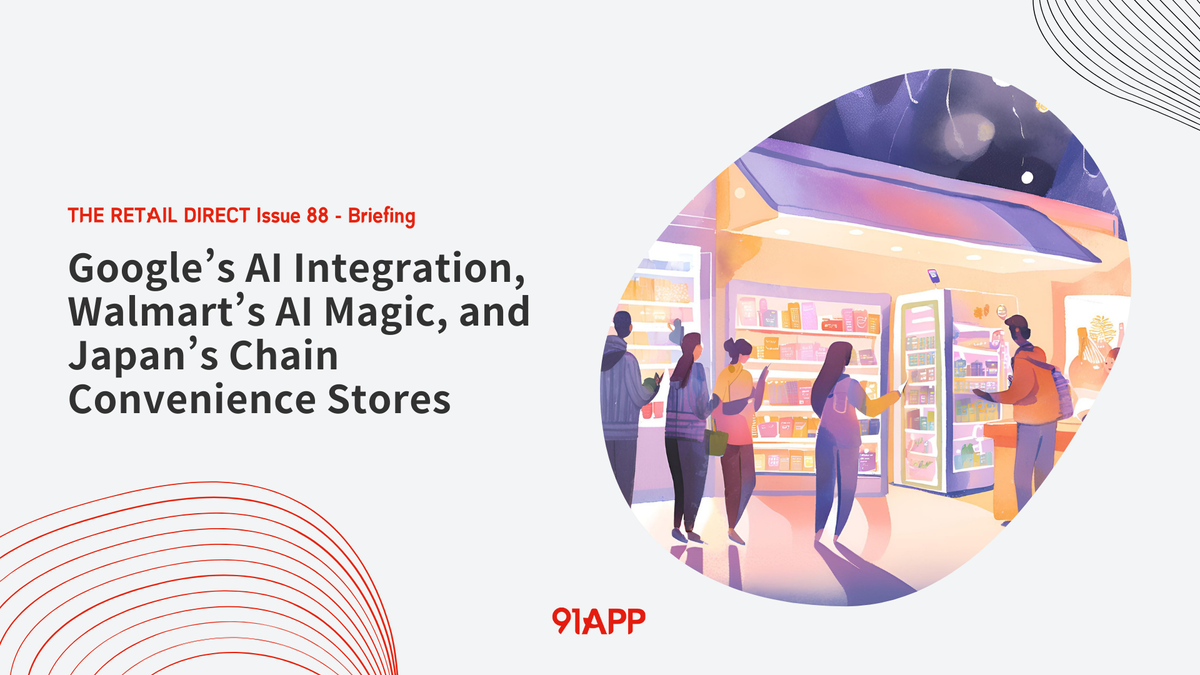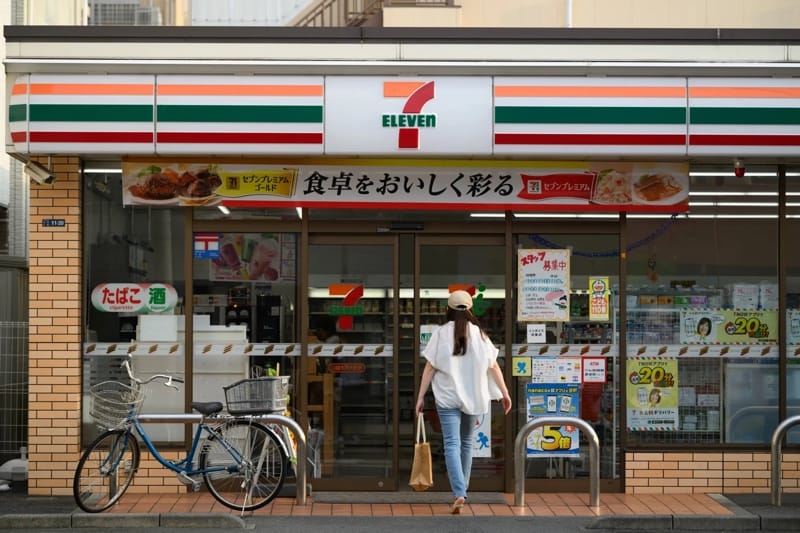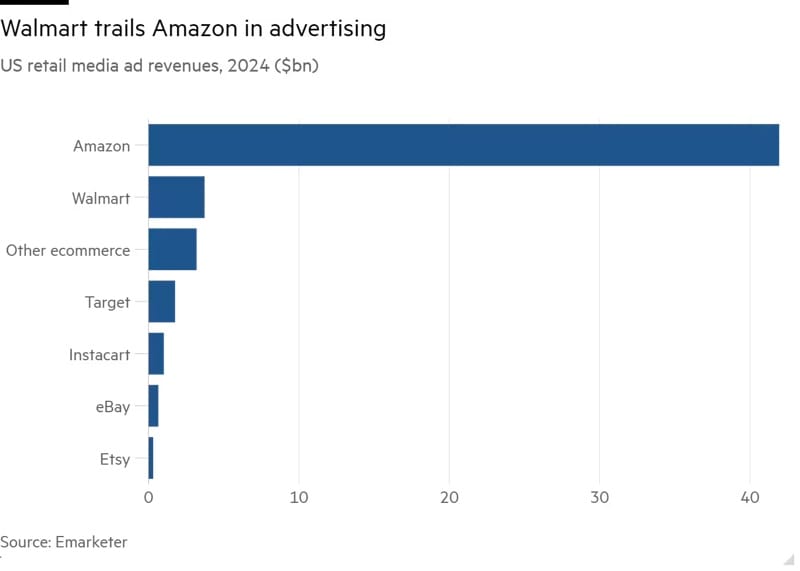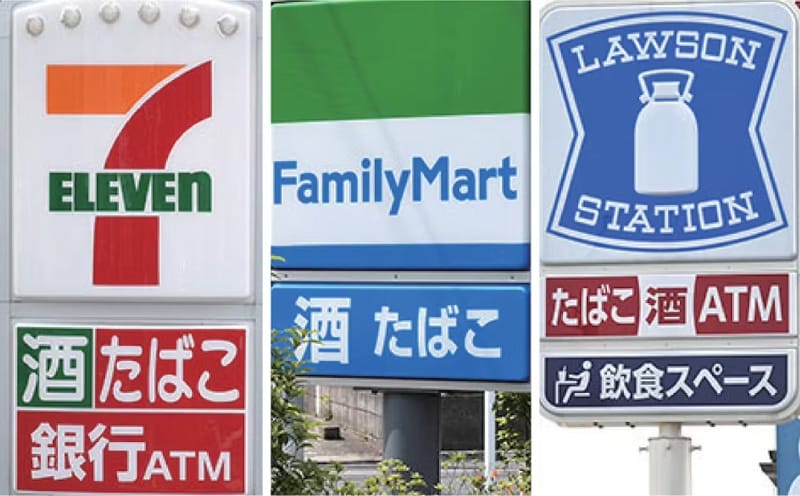TRD Issue 88 - Briefing: Google’s AI Integration, Walmart’s AI Magic, and Japan’s Chain Convenience Stores
Discover Walmart's generative AI leap, Android’s integration strategy, and Japan’s evolving convenience store landscape with 7-Eleven and Lawson.

Hello Subscribers,
The intersection of retail and technology continues to reshape how companies capture market share and drive profits.
Google’s deeper integration of AI into Android signals its commitment to smartphone innovation, setting the stage for another competitive chapter with Apple. On the other hand, Walmart is leveraging generative AI at an unprecedented scale—improving product page updates 100 times faster than traditional manual efforts. This efficiency pays dividends as recent earnings surpassed expectations amid rising consumer spending.
Beyond operations, Walmart is also flexing its muscles in retail advertising, quickly becoming a powerful force in a market worth over $54 billion. Meanwhile, the global allure of Japan’s uniquely efficient convenience-store model is attracting attention as Canada’s Couche-Tard eyes a significant acquisition of 7-Eleven.
More details below. Happy reading!
The Retail Direct
About 91APP
Founded in 2013, 91APP is the premier OMO (online-merge-offline) SaaS company, providing one-stop omnichannel retail solutions in Taiwan, Hong Kong, and Malaysia. It offers advanced Commerce Solutions and Marketing Solutions that enable retail brands to penetrate the D2C (Direct-to-Consumer) e-commerce market and drive operational benefits to their full potential. In 2021, 91APP became the first SaaS company to be listed in Taiwan and has been named one of Taiwan's "NEXT BIG" companies by Startup Island TAIWAN.
For more information about 91APP (TWO: 6741), visit 91app.com.
AI
Google's AI Integration: Transforming Android and Pixel Devices

Google is embedding its Gemini AI deeply into Android and Pixel devices, aiming to redefine user experiences through advanced AI capabilities.
Why It Matters: This integration positions Google to lead in AI-driven mobile technology, enhancing functionalities across its platforms and setting new standards for smartphone innovation.
Key Developments:
- Gemini AI Assistant: Integrated into Android, Gemini offers personalized assistance, understanding user intent to manage tasks like drafting messages and summarizing calls.
- Pixel 9 Series Features: The Pixel 9 lineup introduces AI-driven tools such as "Add Me" for group photos, "Super Res Zoom Video" for enhanced video quality, and "Pixel Studio" for generating images from text prompts.
- Scam Detection in Messages: Google Messages now employs AI to detect and warn users about potential scam texts, enhancing security.
- Gemini in Android Studio: For developers, Gemini in Android Studio assists with coding queries and streamlining the development process.
Strategic Implications: By integrating AI across its ecosystem, Google aims to deliver seamless, intelligent experiences, potentially attracting premium customers and strengthening its market position.
Looking Ahead: Google's commitment to AI integration suggests a future where devices are more intuitive and responsive, with AI playing a central role in everyday interactions.
Source: Stratechery
Walmart Leverages Generative AI to Enhance Product Catalog and Customer Experience

Walmart has utilized generative AI to update over 850 million product data points, achieving a productivity increase of nearly 100 times compared to manual methods.
Why It Matters: This significant efficiency gain enables Walmart to maintain a comprehensive and accurate product catalog, directly improving customer search experiences and operational effectiveness.
Key Developments:
- Enhanced Product Catalog: By employing multiple large language models, Walmart has refined product attributes and characteristics, leading to more detailed and informative product pages. This enhancement aids in better understanding customer intent both online and in-store.
- AI-Powered Shopping Assistant: Walmart beta tests a generative AI-powered shopping assistant within its mobile app. This assistant engages customers in natural conversations, helping them discover and select products tailored to their needs.
- Seller Support via AI: A new AI assistant is being tested to assist marketplace sellers by providing concise answers to their queries, streamlining their experience, and allowing them to focus more on sales activities.
Strategic Implications: Integrating generative AI across Walmart's operations reflects a strategic move to enhance customer satisfaction and operational efficiency. By automating and refining product information, Walmart can offer a more personalized shopping experience and better support its growing marketplace.
Looking Ahead: Walmart plans to continue experimenting with and deploying AI applications globally, aiming to scale these experiences responsibly and cost-effectively to meet future needs.
Source: Modern Retail
Consumers Skeptical of AI-Labeled Products

A recent study in the Journal of Hospitality Marketing and Management reveals that labeling products as "AI-powered" reduces purchase intent among consumers.
Why it matters: Companies may overestimate consumer trust in AI, leading to potential marketing missteps.
Key findings:
- Participants were less likely to buy " AI-powered " products than those labeled "high-tech."
- The term "AI" decreased emotional trust, negatively impacting purchase decisions.
Consumer concerns:
- Apprehension about AI's impact on privacy and data security.
- Fear of AI benefiting corporations more than consumers.
The bottom line: Businesses should focus on highlighting product features and benefits without emphasizing AI to align with consumer preferences and build trust.
Source: Retail Wire
Retail
Alimentation Couche-Tard's Bid for Seven & i Holdings Faces Challenges

Alimentation Couche-Tard, the Canadian owner of Circle K, proposed a $47 billion acquisition of Japan's Seven & i Holdings in Aug 2024, the parent company of 7-Eleven.
Why It Matters: If successful, this would be a Japanese company's most significant foreign acquisition, significantly reshaping the global convenience store industry.
Recent Developments:
- Seven & i's founding family attempted a $58 billion management buyout to counter Couche-Tard's bid but failed to secure financing, leading to a 12% drop in Seven & i's shares.
- Reports suggest Seven & i plans to reject Couche-Tard's offer, aiming to enhance corporate value independently.
- CEO Ryuichi Isaka is expected to step down, with director Stephen Dacus likely to succeed him, marking the first time a foreign-born executive would lead the company.
What's Next:
- Seven & i is considering strategic alternatives, including asset sales and restructuring, to address investor concerns and improve profitability.
- Couche-Tard remains committed to the acquisition, engaging constructively with Seven & i's special committee to address antitrust and national security concerns.
The Bottom Line: The future of Seven & i Holdings hangs in the balance as it navigates internal leadership changes and external acquisition pressures, with significant implications for the global convenience store market
Source: Bloomberg
Walmart's Strong 24Q2 Performance

Walmart reported better-than-expected 2024 Q2 results, with revenue reaching $169.3 billion, a 4.8% increase year-over-year.
Key Highlights:
- Earnings: Adjusted earnings per share (EPS) stood at $0.67, surpassing expectations.
- Sales Growth: Comparable sales in the U.S. rose by 4.2%, driven by a 3.6% increase in transactions and a 0.6% rise in average ticket size.
- E-commerce Surge: Global e-commerce sales grew by 21%, with U.S. e-commerce up 22%, led by store-fulfilled pickup and delivery services.
- Advertising Revenue: Walmart Connect, the company's advertising platform, saw a 30% increase in sales, benefiting from a growing number of advertisers, including marketplace sellers.
Looking Ahead: Walmart has raised its full-year outlook, anticipating net sales growth of 3.75% to 4.75% and adjusted operating income growth of 6.5% to 8.0% on a constant currency basis.
Bottom Line: Walmart's robust 24Q2 performance underscores its ability to attract consumers seeking value amid economic uncertainties, positioning the retailer for continued growth.
Source: Retail Wire
Marketing
Gen Z's Growing Presence on Pinterest

Gen Z is increasingly turning to Pinterest for shopping inspiration, with over 40% of the platform's global monthly users belonging to this demographic.
Why It Matters:
- Brand Discovery: Gen Z users often start shopping on Pinterest, creating mood boards, and exploring niche trends before validating their choices on platforms like TikTok.
- Increased Engagement: Gen Z searches on Pinterest have risen by 30% y/y, indicating a growing reliance on the platform for inspiration and product discovery.
Brands Leveraging Pinterest:
- American Freight: This home goods retailer utilizes Pinterest to showcase affordable furniture options, aiming to attract Gen Z consumers to set up new homes.
- Béis: The luggage brand has experienced significant organic revenue growth through Pinterest, highlighting the platform's potential for reaching Gen Z audiences.
The Big Picture: As Gen Z continues to embrace Pinterest for shopping and inspiration, brands recognize the platform's value in connecting with this influential consumer group.
Source: Modern Retail
Walmart's Advertising Surge

Walmart's U.S. advertising business, Walmart Connect, is rapidly expanding, contributing significantly to the company's profit growth.
Why it matters: Retail media is becoming lucrative, with U.S. spending projected to exceed $54 billion in 2024.
Key points:
- Walmart Connect's revenue grew 30% over the past year, outpacing overall company growth.
- The company leverages its vast customer data to offer targeted ads, both online and in-store.
- A planned $2.3 billion acquisition of Vizio aims to enhance Walmart's connected TV advertising capabilities.
The big picture: As retailers like Walmart capitalize on their customer reach, they are reshaping the advertising landscape and challenging traditional media companies.
Source: FT
Asia
Ambani Enlists Shein to Challenge Tata in India's Fast-Fashion Market

Mukesh Ambani's Reliance Retail is partnering with Chinese fast-fashion giant Shein to compete against Tata Group's Zudio in India's burgeoning affordable fashion sector.
Why It Matters: The collaboration aims to capture a significant share of India's fast-fashion market, which is projected to reach $170 billion by 2026.
Details:
- Shein's Return: After a 2020 ban due to security concerns, Shein is re-entering India through a licensing agreement with Reliance Retail, which will manage operations and data.
- Market Dynamics: Tata's Zudio has expanded rapidly, growing from 80 to nearly 560 stores in four years, while Reliance's Yousta brand has faced slower growth.
- Strategic Move: Reliance's partnership with Shein is a strategic effort to strengthen its position in the fast-fashion market ahead of a potential IPO for its retail unit.
What's Next: The competition between Reliance and Tata is expected to intensify, offering consumers more affordable fashion choices.
Source: Bloomberg
Seven-Eleven and Lawson Double Down on Generative AI

Japan's leading convenience store chains are integrating generative AI to enhance operational efficiency.
Seven-Eleven Japan:
- Expansion: Plans to double the number of employees using generative AI to approximately 3,000 by the end of fiscal year 2024.
- Applications: Utilizes AI for product development, management, and sales, analyzing POS data, supplier information, and social media trends.
- Impact: Reduced time spent on information gathering and trend analysis by 90%; programming tasks now take one-sixth of the previous time.
Lawson:
- Implementation: Enabled all 4,000 employees to use generative AI for tasks like meeting summaries and contract drafting, aiming to halve the time required for these activities.
- Training: Conducted IT fundamentals training for all staff, including executives, and established guidelines to prevent personal data input.
FamilyMart:
- Deployment: Introduced generative AI in over 7,000 stores (more than 40% of total) to streamline manual searches, reducing search time by two-thirds.
- Functionality: Employees can voice questions, with AI providing on-screen responses, enhancing operational efficiency.
Industry Outlook:
- Market Growth: Boston Consulting Group projects the generative AI market to grow sevenfold by 2027, reaching approximately $120 billion.
- Adoption Rates: Despite potential benefits, only 16% of Japanese employees regularly use generative AI in their work, the lowest among major countries.
Source: Nikkei
FamilyMart & Lawson CEOs on the Future of Convenience

Japan’s convenience giants FamilyMart and Lawson are evolving rapidly, leveraging digital innovation, AI, and uniquely tailored products to reshape their business models.
FamilyMart's Strategy (CEO Kensuke Hosomi)
- Innovative Products: FamilyMart gained popularity through distinctive products like "Famima Socks" and fresh "Nama Coppepan" bread, a result of improved collaboration among sales, products, and marketing teams.
- Strategic Refocus: Hosomi noted past mergers diluted the brand’s vision. The company now emphasizes strategic clarity, detailed planning, and effective product messaging to consumers.
- Real-Digital Integration: FamilyMart views its stores as critical hubs for blending digital services and physical retail, significantly as online delivery costs rise and demographics shift.
Lawson's Approach (CEO Sadanobu Takemasu)
- Value Beyond Discounts: Lawson is shifting from purely discount-driven sales to unique, high-quality offerings like specialty desserts and beverages that draw customer loyalty.
- AI-Powered Productivity: Lawson has heavily invested in AI technology, including an automated ordering system that significantly streamlines store operations and is highly praised by franchisees.
- Human-Centric Automation: Takemasu emphasizes maintaining a human presence in stores, using technology not to replace staff but to free them for personalized customer interaction and community engagement.
Why it matters: Both FamilyMart and Lawson see digital integration, unique product offerings, and strategic innovation as essential to remaining competitive and relevant in Japan's saturated convenience store market.
The Bottom Line: Future convenience stores in Japan will combine advanced digital tools and community-focused services, ensuring they stay indispensable to daily life.
Source: Nikkei





Comments ()